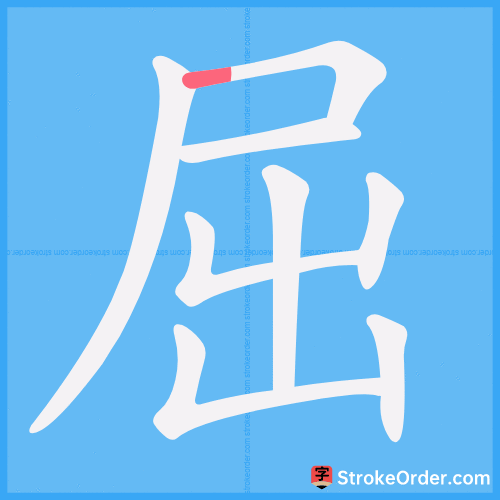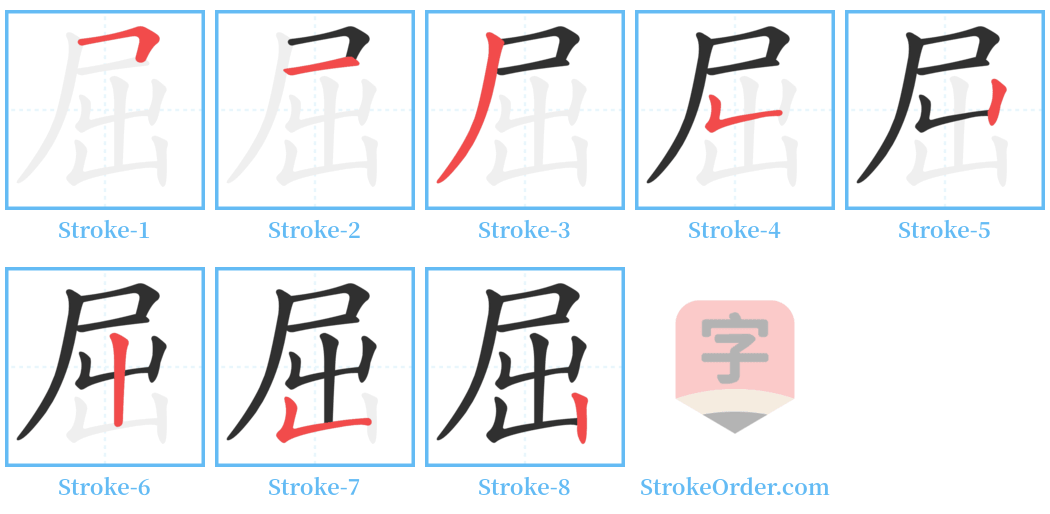屈 Stroke Order
Animated Stroke Order of 屈

Stroke Order Diagrams for 屈

Step-by-Step Handwriting Guide for 屈

Learn to Write Chinese Characters with Video Tutorials
Watch the video of writing the Chinese character "屈", learn the correct stroke order (笔顺) of the character "屈", and master the standard way of writing the character "屈".
Free Printable Handwriting Practice with Stroke Order: 屈
Printable Writing Practice Worksheet of "屈" in Portrait Orientation (Tian Zi Ge)

Printable Writing Practice Worksheet of "屈" in Landscape Orientation (Tian Zi Ge)

Information of 屈
Pinyin
qū
Radical
尸
Strokes
8 strokes
Usage
★★★★★
Definition
bent / feel wronged
屈 [qū]
动
1. 使弯曲,与“伸”相对。
Bend; the opposite of "stretch".
例:屈曲(bend curve);屈折(bend and break);屈膝(bend knee);屈伸(bending and stretching, extended to mean disappointment and satisfaction)。
2. 低头,降服。
Lower the head, submit.
例:屈服(yield);屈从(submit);威武不屈(unsubdued by might)。
3. 冤枉,叫人不痛快。
Feel wronged; put someone to great inconvenience.
例:冤屈(feeling wronged);委屈(feel wronged);屈辱(humiliation);屈才(feeling wronged for talents)。
4. 理亏。
Be in the wrong.
例:屈心(unfairness, bad conscience);理屈词穷(being in the wrong and having no argument left)。
5. 姓。
A surname.
名
1. 古邑名。
Ancient place name: Qu town, located in the Jin domain during the Spring and Autumn Period, now north of Jixian in Shanxi Province, known for producing excellent horses.
2. 姓。
A surname; one of three clans of the royal family of Chu during the Spring and Autumn Period.
形
1. 假借为“崛”。
Used as a metaphor for "towering" - high and prominent.
2. 假借为“倔”。
Used as a metaphor for "stubborn" or "unbending".
Qu Yuan (340-278 BC), famous Warring States statesman and poet, author of Sorrow at Parting 離騷|离骚 Lisao in Songs of Chu 楚辭|楚辞
Input Method for 屈
Pinyin
qu1
Wubi
nbmk
Cangjie
suu
Zhengma
xmzz
Four Corner
77272
Unicode
U+5c48
Same Pronunciation Characters